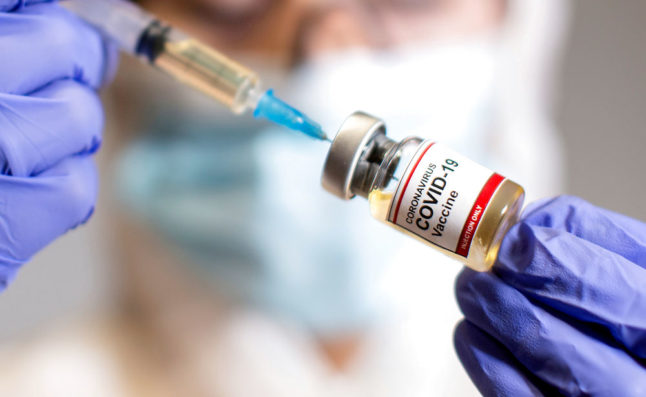The ‘vaccine passport’ would take the form of official documentation which would show whether or not a person has received a Covid-19 vaccine, Jyllands-Posten reports.
Although the health minister, Magnus Heunicke, has not officially confirmed what the purpose of such documentation would be, the Confederation of Danish Industry has said it would allow the economy to open more quickly if proof of vaccination could be used to access events like concerts or certain types of business.
Airline Qantas said earlier this week that it intended to require passengers to be vaccinated against Covid-19 once vaccines have been rolled out.
It is unclear whether the government wants to attach privileges to vaccination in certain instances, or whether vaccine passports are solely intended as official documentation which can be used if private companies decide to ask for it, according to JP’s report.
Opposition parties the Liberals and Conservatives have both expressed support for the vaccine passport, the newspaper writes.
The Confederation of Danish Industry (DI), an interest organisation representing businesses in Denmark, has also stated clear support for the plan.
“The possibilities are endless. We are thinking in terms of how we can get away from a society that is closing down more and more. A passport like this could be used for all sorts of activities, including concerts, private parties and access to businesses where assurance is wanted that Covid-19 won’t find its way into the business, causing it to suspend operations,” DI sector director Michael Svane told Jyllands-Posten.
Vaccines from international companies including Moderna, AstraZeneca/Oxford University and BioNTech/Pfizer are nearing approval stage, which would allow them to be used in Denmark. All three companies have announced high effectiveness in clinical trials.
But around one in five people in Denmark remains sceptical to some degree over whether to be vaccinated against Covid-19 according to a recent Aarhus University survey reported by JP.
A Covid-19 passport could encourage the general public to get the vaccination once it is available, a spokesperson for GPs told the newspaper.
That could be an important factor given that the effectiveness of a vaccine is connected to how many people in a community take it.
“This is not coercion, but a form of force, pressure or limitation, if you say to people that they lose out on privileges in society as individuals if they don’t comply with certain vaccination principles,” Anders Beich, head of the Danish College of General Practitioners, told Jyllands-Posten.
The decision of whether to use force in any form to promote vaccination rests with politicians, Beich stressed. He also noted that, from a medical perspective, a high level of compliance with vaccination is desirable.
“We can’t force people to have a treatment that will probably benefit them and society. Normally, we wouldn’t have the ability to force someone to go to hospital or make them stop smoking. In this case, we’re talking about an infectious disease, but our view is that there must be good arguments present before force is introduced in regard to making people get vaccinated,” he said.
READ ALSO: Denmark to receive coronavirus vaccines through EU scheme



 Please whitelist us to continue reading.
Please whitelist us to continue reading.
I will be the last to take the vaccine this is madness